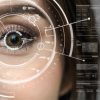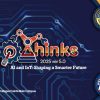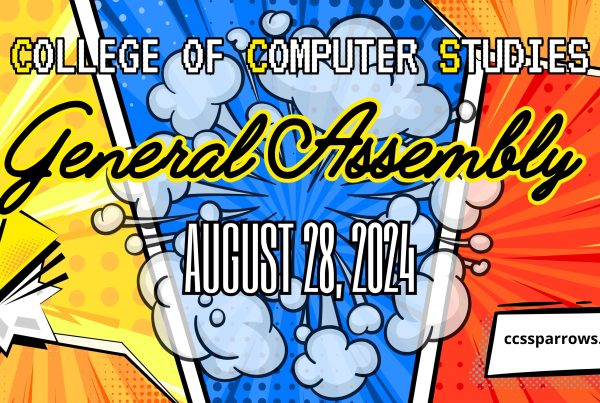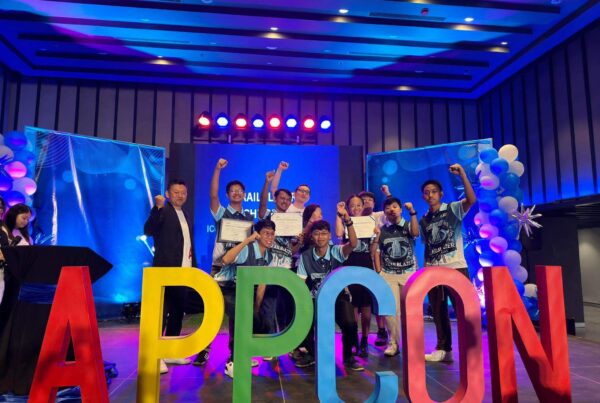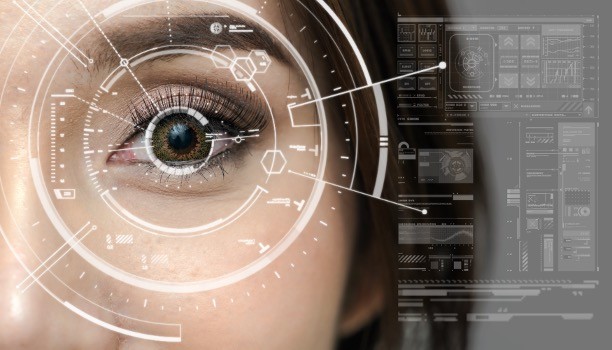
Entering the Age of Intelligent Systems
We are living in a time when Artificial Intelligence (AI) is no longer science fiction—it’s science in action. From virtual assistants like Siri and ChatGPT to autonomous vehicles and smart homes, AI has woven itself into the fabric of our daily lives. What was once the dream of computer scientists is now a defining feature of modern computing.
Artificial Intelligence, in its simplest definition, is the capability of machines to mimic human reasoning and decision-making. Through data-driven learning, algorithms, and neural models, AI can now analyze, predict, and even create. For students in Computer Science, Information Technology, and Information Systems, understanding AI is no longer optional—it is essential.
Each discipline contributes uniquely:
- BSCS students develop the algorithms and logic behind intelligent systems.
- BSIT students build, deploy, and secure the infrastructures that support them.
- BSIS students translate AI outputs into strategic decisions that drive businesses and organizations.
AI is not just transforming technology—it’s redefining how humans think, work, and create.
The Evolution of AI Technologies
The story of AI is a story of human curiosity. Early AI, born in the mid-20th century, relied on rule-based systems—machines that could only follow instructions written by humans. These were limited by logic but paved the way for something greater.
Then came Machine Learning (ML)—the turning point when computers began to learn from data instead of being told what to do. As data expanded exponentially, so did the power of AI. The rise of Deep Learning, inspired by how the human brain processes information, enabled machines to recognize images, understand language, and even generate new content.
Today, we stand at the frontier of Generative AI and Autonomous AI, systems that can create, adapt, and decide independently. The transition from reactive to creative intelligence marks the beginning of a new technological era.
Emerging Technologies in Artificial Intelligence
Generative AI and Foundation Models
Generative AI has captured the world’s attention through platforms like ChatGPT, Claude, and Gemini. These foundation models, trained on vast datasets, can generate text, images, and even code. They assist programmers, automate content creation, and enhance education.
For students, this means mastering prompt engineering, model fine-tuning, and AI ethics—skills that define the future digital workforce.
Edge AI and Tiny Machine Learning
AI is no longer confined to powerful servers—it’s moving to smaller devices. Edge AI runs on local hardware such as drones, smart sensors, and IoT devices. This enables real-time processing while preserving privacy. Meanwhile, TinyML brings AI to microcontrollers, making smart, energy-efficient automation possible.
For BSIT and BSCS students, Edge AI bridges software with hardware—where intelligence meets the physical world.
Explainable AI (XAI)
As AI systems make decisions that impact lives, transparency becomes vital. Explainable AI ensures that algorithms are understandable and accountable. Whether in healthcare, finance, or government, XAI promotes fairness and trust. Students must learn to design systems that not only perform well but also explain why they do.
AI in Cybersecurity
AI serves as both defender and attacker in modern cybersecurity. It detects anomalies, prevents intrusions, and predicts attacks before they happen. However, adversaries also use AI for phishing and malware creation.
Future IT professionals must learn to leverage AI for predictive defense, threat intelligence, and security automation—an essential skill in the digital age.
AI in the Cloud
With the rise of AI-as-a-Service (AIaaS) platforms such as AWS, Azure, and Google Cloud, AI is now more accessible than ever. Cloud-based AI allows rapid model deployment and real-time analytics. Students skilled in cloud computing and AI integration will be the architects of next-generation intelligent systems.
Quantum AI
Quantum AI combines quantum computing’s computational power with AI’s analytical intelligence. This fusion promises breakthroughs in cryptography, logistics, and scientific modeling. Although still in development, it represents the next leap in computing. Building foundational knowledge in mathematics, logic, and quantum theory will give students a competitive edge in this emerging domain.
Ethics and Professional Responsibility in AI
As AI grows more capable, ethical considerations become more urgent. Biased data can lead to biased decisions, threatening fairness and equity. Professionals must ensure that AI systems uphold accountability, transparency, and inclusiveness.
Ethics must stand at the heart of AI development. The role of computing professionals is not only to innovate but also to protect human dignity, privacy, and equality. AI should enhance human potential, not replace it. In education, healthcare, and governance, responsible AI will define the difference between progress and peril.
Preparing Students for the AI-Driven Future
The world needs technologists who understand both algorithms and empathy. To prepare for the AI era, students should focus on developing three key skill areas:
- Technical Skills – Learn Python, TensorFlow, and cloud-based AI frameworks.
- Analytical Skills – Strengthen critical thinking and data literacy to interpret AI-driven insights.
- Soft Skills – Cultivate creativity, communication, and collaboration, which machines cannot replicate.
Engage in AI-focused clubs, participate in hackathons, and pursue certifications such as Google AI, IBM Data Science, or Microsoft Azure AI. Remember: technology evolves quickly, but adaptability keeps you relevant.
The Future of ICCT Colleges: Bachelor of Science in Data Science
ICCT Colleges is taking a visionary step forward with the upcoming Bachelor of Science in Data Science program. This course will bridge computing, mathematics, and artificial intelligence, preparing students to turn data into actionable intelligence.
The program emphasizes machine learning, statistical modeling, big data analytics, and ethical data governance. It opens pathways to careers such as Data Analyst, Machine Learning Engineer, and AI Specialist.
Students can start preparing now by:
- Strengthening their foundation in math and statistics.
- Learning programming languages like Python, R, and SQL.
- Exploring visualization tools like Tableau and Power BI.
Data Science and AI are inseparable — Data Science is the fuel, and AI is the engine that drives intelligent innovation. ICCT’s forward-looking curriculum ensures that its graduates will not just adapt to the future—they will shape it.
Building the Future with Intelligence
Artificial Intelligence is reshaping every facet of human existence. But beyond machines and algorithms, its true power lies in human creativity and ethical purpose. The next generation of innovators—today’s students—will determine how AI transforms our world.
As future professionals, remember:
“The future belongs to those who understand, shape, and guide intelligence—both human and artificial.”
Together, let’s build a future where AI serves not just efficiency, but humanity.



